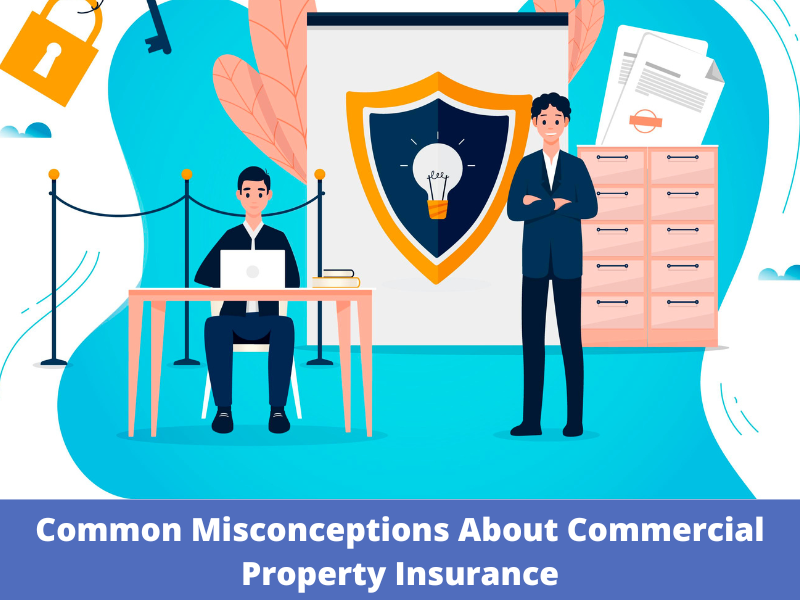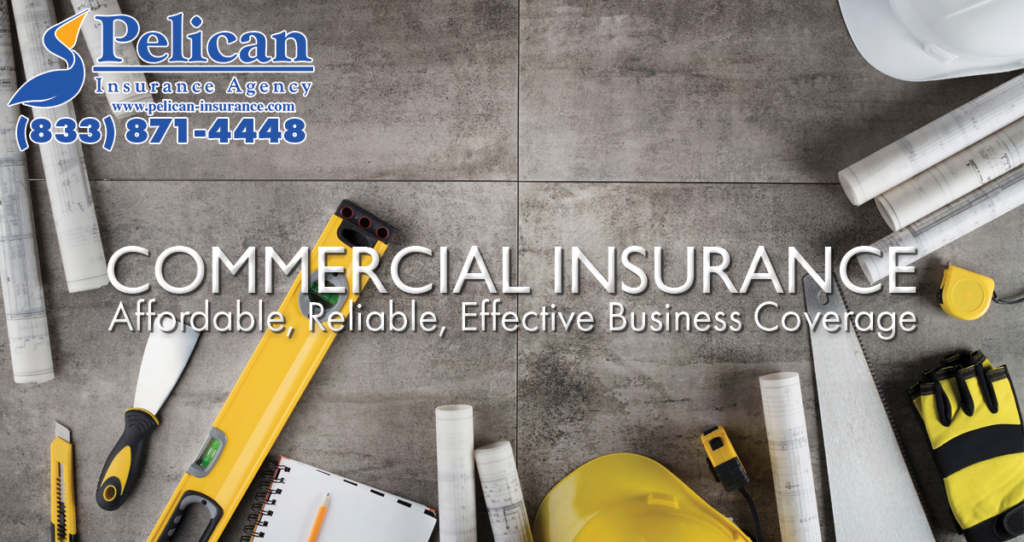Common Misconceptions About Commercial Property Insurance

Misconceptions and myths surrounding commercial property insurance might prevent firms from obtaining necessary protection. Ensuring your business is fully insured is critical to its existence and success. This article will dispel common misunderstandings regarding commercial property insurance and provide the information you need to make intelligent business decisions.

Understanding Commercial Property Insurance
Before we go into common myths, let’s define business property insurance. This insurance protects businesses from financial losses caused by physical assets or property damage. It might include everything from the structure to the equipment, inventory, furniture, and even loss of income.
Common Misconceptions About Commercial Property Insurance Debunked
All Properties Are Covered Under the Same Terms
Truth: Commercial property insurance coverage varies widely. One policy may cover natural disasters, but another may not. It is critical to recognize that each policy is unique and designed for specific sorts of properties and businesses. Various criteria, including the location, type of business, and building materials, determine the coverage. Make sure you understand what your policy covers and any exclusions that may apply.
Small Businesses Don’t Need Commercial Property Insurance
Truth: Property damage can cause considerable financial losses for any organization, regardless of size. Whether you own or lease your property, business property insurance is essential. It includes the physical structure and the goods within, such as equipment, inventory, and furnishings. Small firms operating on smaller margins may find this insurance especially valuable in an unexpected disaster.
Commercial Property Insurance Covers All Natural Disasters
Truth: This is a frequent misconception. Floods and earthquakes are often not covered under standard commercial property insurance policies. These natural calamities require additional protection. To ensure complete safety, business owners should examine the risks associated with their geographical location and consider extra policies such as flood or earthquake insurance.
The Cost of Commercial Property Insurance is Prohibitive
Truth: Many business owners forego coverage because of the high cost. However, the expense of needing more insurance can be significantly higher. Insurance premiums are set according to the degree of risk associated with your property, including location, industry, and security measures. Understanding these criteria and working with an insurance agent can help businesses get reasonable and comprehensive coverage.
Business Owners Can Settle for Basic Coverage
Truth: Opting for the most basic insurance plan can be a significant mistake for business owners. Basic plans may not cover the significant risks that your company confronts. It is critical to assess your company’s specific requirements and establish a policy that protects against all potential dangers. It could include business interruption insurance, which protects against income loss if your company’s operations are suspended.
Property Damage Coverage
Property damage coverage is the foundation of commercial property insurance, protecting your firm from financial losses caused by covered dangers such as fire, vandalism, or natural catastrophes.
Business Interruption Insurance
Business interruption insurance provides critical financial protection by compensating for lost income and ongoing expenses when your business operations are temporarily suspended or disturbed due to a covered risk, maintaining continuity during difficult times, and assisting your business to recover efficiently.
Liability Protection
While commercial property insurance packages are frequently coupled with other policies, some provide limited liability coverage, which protects your firm from legal duties and financial damages caused by third-party harm or harm to property on the premises.
Evaluating Your Business’s Insurance Needs
Location and Natural Disaster Risk
Assess your company’s geographic position to discover potential natural disaster hazards such as floods, earthquakes, and hurricanes. Based on this assessment, consider if additional coverage, such as flood or earthquake insurance, is required to limit these risks adequately.
Type of Business and Assets Owned
Consider your company’s specific operations and assets to comprehend better the risks involved. For example, an industrial business may be more vulnerable to fire or equipment damage than a retail store. Tailor your insurance coverage to handle these distinct risks effectively.
Building Age and Condition
Assess the age and condition of your company’s facilities to identify potential weaknesses. Older buildings may be more prone to structural concerns or wear and tear, necessitating additional coverage or maintenance considerations to offer complete protection against property damage.
Conclusion
The landscape of commercial property insurance is frequently misunderstood, resulting in inadequate coverage and avoidable risks for firms. Businesses may more effectively protect their assets from potential losses by debunking common misconceptions and understanding the essential components of a comprehensive policy. Remember that proper insurance coverage is critical to a secure, robust business. Pelican Insurance Agency is here to help you navigate the complexity of commercial property insurance, ensuring that your company has the required precautions to face the future confidently. Do not let myths and misconceptions prevent you from protecting your business. Contact us today for a policy tailored to your specific demands and concerns.